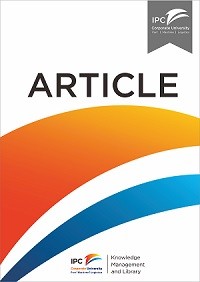Article
Reducing transportation greenhouse gas emissions with collaborative distribution: A case study
The purpose of this paper is to study the potential for improving sustainability performance in food supply networks by implementing collaborative distribution. Food supply chains generate a significant portion of CO2 emissions, because of the large volume of food transportation and the large number and frequency of trips made to deliver food products to retail stores, making it available to the customers. Collaboration of partners in food supply chains will lead to reducing CO2 emissions
Ketersediaan
#
IPC Corporate University Library
ATC LO MEN r C.1
ATC1601568
Tersedia
Informasi Detail
- Judul Seri
-
Management Research Review
- No. Panggil
-
ATC LO MEN r
- Penerbit
- United Kingdom : Emerald Insight., 2015
- Deskripsi Fisik
-
21 p .
- Bahasa
-
English
- ISBN/ISSN
-
-
- Klasifikasi
-
LO
- Tipe Isi
-
-
- Tipe Media
-
-
- Tipe Pembawa
-
online resource
- Edisi
-
Vol. 38 No. 10, 2015 pp. 1049-1067
- Subjek
- Info Detail Spesifik
-
-
- Pernyataan Tanggungjawab
-
Carlos Mena
Versi lain/terkait
| Judul | Edisi | Bahasa |
|---|---|---|
| Reducing transportation emissions : A reaction to stakeholder pressure or a strategy to increase competitive advantage | Vol. 44 No. 4, 2014 pp. 283-304 | en |
| Yard crane management by simulation and optimisation | Vol. 11, 1, 36–57 | en |
| A comparative analysis of free trade zone policies in Taiwan and Korea based on a port hinterland perspective | Volume 25 Number 2 December 2009 | en |
| Greenhouse gas emissions from ships in ports – case studies in four continents | en | |
| Competitive strategies and manufacturing logistics: An empirical study of Hong Kong manufacturers | Vol. 35 No. 1, 2005 pp. 20-43 | en |
Lampiran Berkas
Komentar
Anda harus masuk sebelum memberikan komentar

 Karya Umum
Karya Umum  Filsafat
Filsafat  Agama
Agama  Ilmu-ilmu Sosial
Ilmu-ilmu Sosial  Bahasa
Bahasa  Ilmu-ilmu Murni
Ilmu-ilmu Murni  Ilmu-ilmu Terapan
Ilmu-ilmu Terapan  Kesenian, Hiburan, dan Olahraga
Kesenian, Hiburan, dan Olahraga  Kesusastraan
Kesusastraan  Geografi dan Sejarah
Geografi dan Sejarah